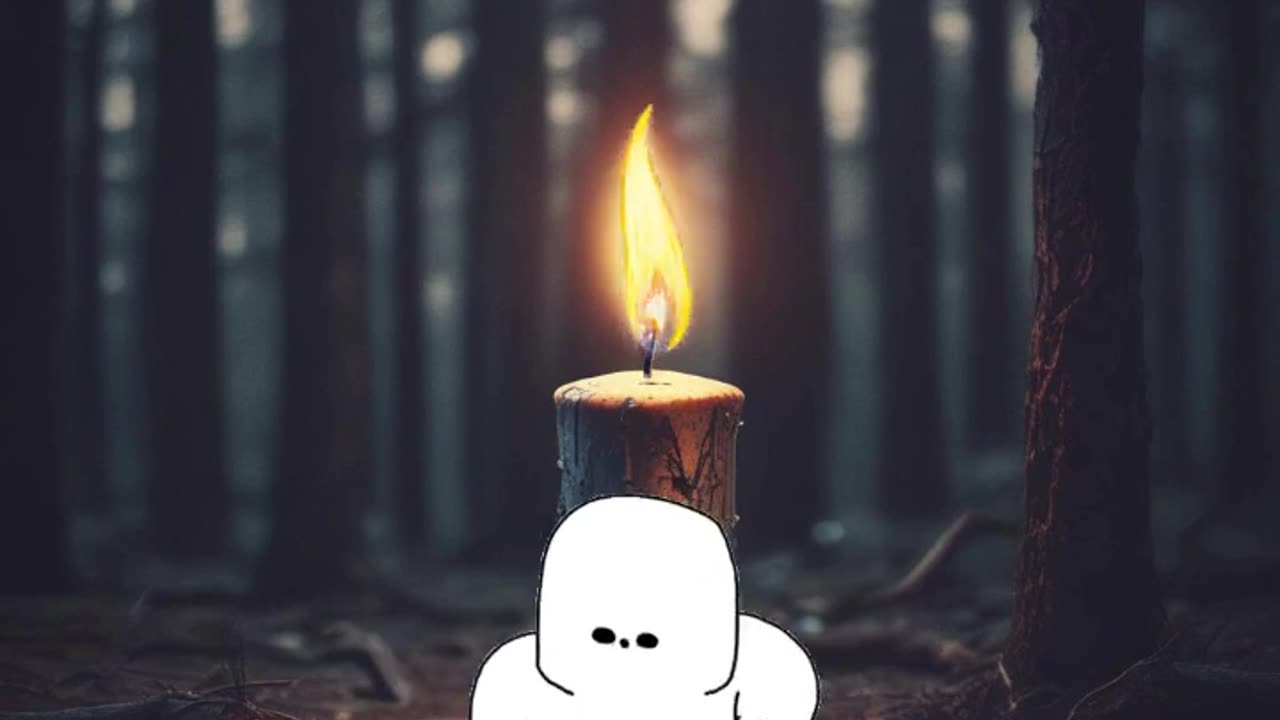Premium Only Content

When the Voices Say Let Go!
When the Inner Voices Say "Give Up": Understanding the Mental Anguish of Feeling Defeated.
The mind can be a powerful ally, guiding us through challenging times, helping us stay resilient. But it can also turn against us, especially when the voice that usually gives courage and determination seems to fade, replaced by doubts and fears that whisper, “It’s over. Give up.” For anyone who's been in a battle—whether it's a personal struggle, a fight for justice, or a long-standing mission—the moment when even your own mind tells you to stop fighting is one of the most isolating and painful experiences.
The Inner Conflict.
For many, inner voices represent guidance, offering support and reason. But when these voices begin to sound more like a prosecutor than an ally, it can plunge us into a mental storm, amplifying feelings of worthlessness, exhaustion, and failure. These voices aren’t literal hallucinations; rather, they’re our inner monologues reflecting doubts that have taken root over time. These voices emerge when self-doubt overcomes self-assurance, often whispering messages that feel as though they’re steering us away from what we've been fighting for.
The intensity of this inner conflict can become unbearable. When you've been striving towards something, putting in endless effort, perhaps even sacrificing relationships, time, and peace of mind, the idea that it may all be for nothing can be devastating. This isn’t simply a fleeting thought but rather an echo that feels deeply personal and profoundly unsettling.
Recognizing Mental Anguish as a Sign of Burnout.
When the inner voices turn critical, it often indicates burnout—a state where the body, mind, and soul have been stretched to their limits. Exhaustion chips away at confidence, turning optimism into cynicism, joy into numbness, and courage into despair. The sense that you’re losing control over your mental state amplifies the anguish, making you wonder if the effort has been worth it at all. The feeling of defeat can become so encompassing that it feels as if the only way to find peace is to walk away.
Yet, burnout and mental exhaustion are as much physical as they are psychological. When the body and mind are deprived of rest and recovery, they respond by sending signals to “stop”—a way of protecting you from further harm. However, interpreting this as failure rather than a need for rest can deepen the sense of hopelessness.
The Toll of a Long Fight.
Some battles in life are brief, but others can last years, even decades. These long-haul struggles, whether for personal justice, change, or survival, leave scars, sometimes visible but often internal. The longer the struggle, the more energy it requires, and the more likely it becomes that, at some point, the person will falter. When it feels like your efforts aren’t paying off, the fight can feel increasingly pointless. And when the inner voices start echoing defeat, it can feel like you’re losing not only the battle but also yourself.
These moments often come with feelings of shame, anger, and self-blame. Shame for thinking you might not be strong enough, anger at yourself for not pushing harder, and self-blame for feeling weak or hopeless. The mind can become a punisher rather than a healer, turning what should be a time of self-reflection and rest into a relentless critique of your worth and abilities.
Finding Strength Amidst Despair.
While the voices of self-doubt can feel overpowering, they are often temporary. These voices reflect current emotions rather than an immutable truth. In many cases, taking a step back and giving yourself time to recover can change the tone of these voices, restoring hope where there once was despair. Sometimes, sharing your struggles with others, writing down your thoughts, or even allowing yourself to grieve can provide perspective and relief.
There is also strength in recognizing that mental anguish is a part of life’s process, a signal to reassess, not a sign to surrender. Allowing yourself to feel these emotions and not resist them can bring greater understanding of what you need to continue forward.
Learning to Trust Your True Voice.
When doubts arise, it’s easy to believe they’re the final word on our ability to succeed. But they aren’t. Often, they represent fatigue, confusion, or fear that can be overcome with time and self-compassion. Though it may feel difficult to believe, the inner voices that once guided you can return with strength and clarity after a period of healing.
So, if you find yourself in the throes of mental anguish, remember that even if these voices are louder than ever, they don’t define your worth or your capacity for resilience. Remember that this moment doesn’t represent the end; instead, it may be a necessary pause that allows you to regroup and reconnect with your purpose. The battle isn’t over just because your mind says it is—it might simply be time to find new ways to fight.
-
 1:58:36
1:58:36
Redacted News
2 hours agoUkraine bans Christians, Trump Sends Troops to Chicago, German AFD members being murdered | Redacted
81.9K50 -
 LIVE
LIVE
Michael Franzese
1 hour agoMy Daughters CONFRONTED Me About Being a Mobster Dad
330 watching -
 24:02
24:02
Kimberly Guilfoyle
4 hours agoCartel Strikes: Breaking News Coverage! | Ep.251
12.5K5 -
 1:01:36
1:01:36
Sarah Westall
1 hour agoBlackrock & the WEF Collaborate for World Dominance, Free Agency with AI w/ Reinette Senum
5.09K -
 3:08
3:08
Michael Heaver
12 hours agoOutraged UK Sends EMPHATIC Message
1101 -
 1:20:15
1:20:15
vivafrei
3 hours agoRFK Jr. Takes on the Pharma WHOORES! Toddler-Assaulter Granted BAIL? COMPLYE WITH CRIMINALS! & more
94.6K59 -
 LIVE
LIVE
LadyDesireeMusic
3 hours ago $0.80 earnedLive Piano Request - Anti Brain Rot - Support Culture Shift
132 watching -
 LIVE
LIVE
LFA TV
11 hours agoLFA TV ALL DAY STREAM - THURSDAY 9/4/25
1,108 watching -
 13:43
13:43
The Kevin Trudeau Show Limitless
1 day agoClassified File 3 | Kevin Trudeau EXPOSES Secret Society Brainwave Training
72.8K11 -
 1:09:23
1:09:23
The HotSeat
3 hours agoTrump’s Parade = Mocked, China’s Parade = Praised: Leftist Hypocrisy EXPOSED
14.4K5